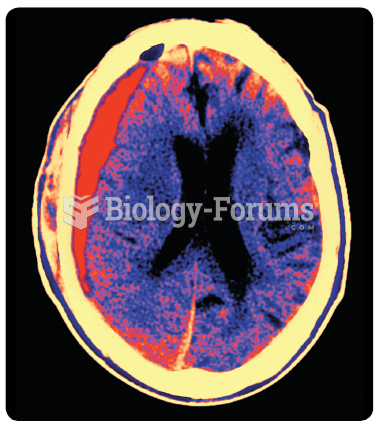|
|
|
Cutaneous mucormycosis is a rare fungal infection that has been fatal in at least 29% of cases, and in as many as 83% of cases, depending on the patient's health prior to infection. It has occurred often after natural disasters such as tornados, and early treatment is essential.
Opium has influenced much of the world's most popular literature. The following authors were all opium users, of varying degrees: Lewis Carroll, Charles, Dickens, Arthur Conan Doyle, and Oscar Wilde.
Asthma cases in Americans are about 75% higher today than they were in 1980.
The familiar sounds of your heart are made by the heart's valves as they open and close.
During the twentieth century, a variant of the metric system was used in Russia and France in which the base unit of mass was the tonne. Instead of kilograms, this system used millitonnes (mt).
 Forest fragments left by clear-cutting forest from the surrounding landscape have very different phy
Forest fragments left by clear-cutting forest from the surrounding landscape have very different phy
 Comparison of the chemical structures of psilocybin and LSD. Psilocybin (left) is derived from a mus
Comparison of the chemical structures of psilocybin and LSD. Psilocybin (left) is derived from a mus




